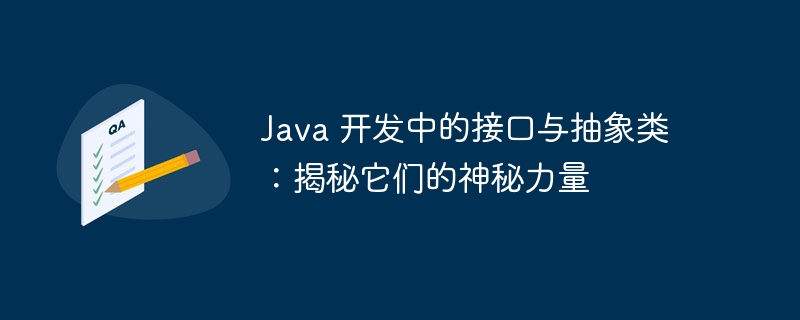

Interfaces and abstract classes in Java development have always been the focus of discussion among developers. In object-oriented programming, they all play an important role, but each has its own characteristics. An interface defines a specification, while an abstract class provides a basic implementation. PHP editor Xinyi will reveal their mysterious power to you and help you better understand and use their role in Java development.
An interface is a set of unimplemented method declarations that define the behavior of a specific type. A class must implement all methods in an interface to use the interface. An abstract class is a partially implemented class that contains abstract methods (unimplemented methods) and concrete methods (implemented methods). Abstract classes cannot be instantiated and can only be inherited by subclasses. Subclasses must implement all abstract methods.
Advantages of interface
Advantages of abstract classes
When to use interfaces or abstract classes
Using interfaces or abstract classes depends on specific needs:
Code Example
Interface example:
public interface Drawable {
void draw();
}Abstract class example:
public abstract class Shape {
protected int x, y;
public Shape(int x, int y) { this.x = x; this.y = y; }
public abstract double area();
}How to implement interfaces and abstract classes
implements keyword to implement the interface and implement all unimplemented methods. extends keyword to inherit abstract classes and implement all abstract methods. Summarize
Interfaces and abstract classes are essential tools in Java development. They provide loose coupling, extensibility, polymorphism, and forced inheritance. By understanding their characteristics and usage, developers can write more flexible, scalable, and maintainable code.
The above is the detailed content of Interfaces and abstract classes in Java development: revealing their mysterious power. For more information, please follow other related articles on the PHP Chinese website!
